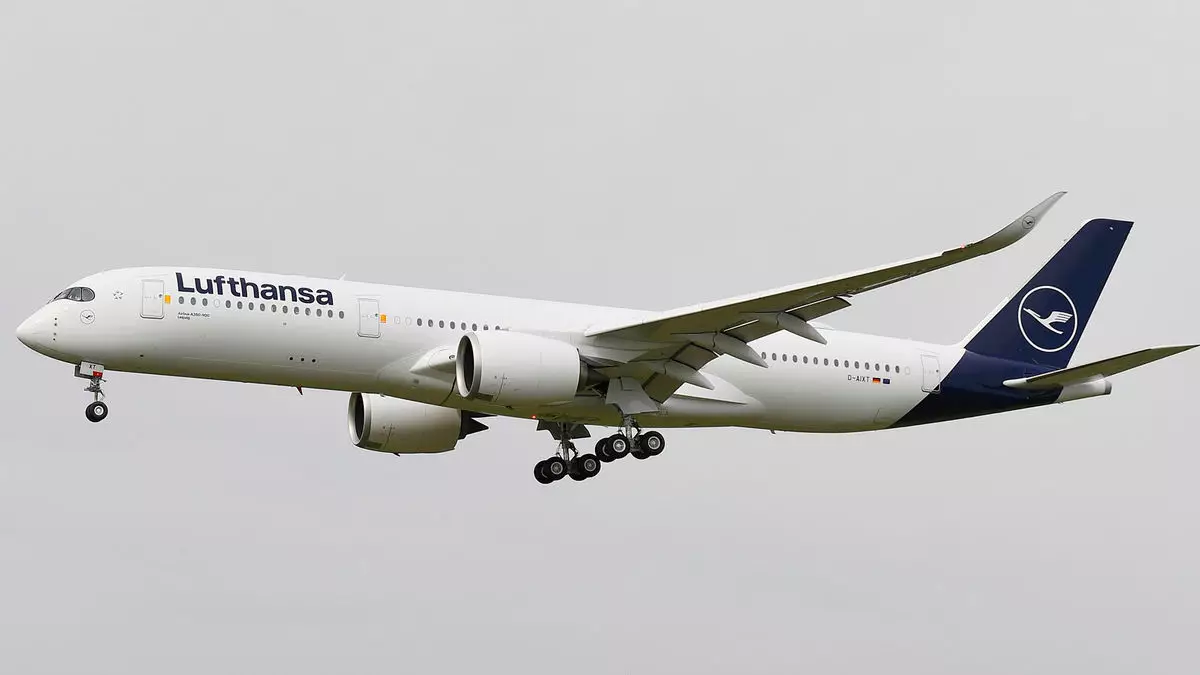In May 2022, the U.S. Transportation Department (DOT) issued a substantial $4 million fine against Lufthansa Airlines, citing discrimination against a group of Orthodox Jewish travelers. The case has ignited discussions about the airline’s responsibility in ensuring fair treatment and adherence to anti-discrimination laws. This article examines the circumstances surrounding the incident, the implications of the fine, and the broader context of discrimination within the airline industry.
The Incident: A Snapshot of Events
The incident in question unfolded during a flight from New York’s JFK Airport to Budapest, with a layover in Frankfurt. On May 3, 2022, a group of Orthodox Jewish travelers found themselves facing serious repercussions due to alleged violations of face mask regulations. Despite the requirement for all passengers to wear masks—a safety measure enforced by airlines during the COVID-19 pandemic—the actions taken by Lufthansa’s crew raised red flags regarding discriminatory practices.
Initially, the flight crew briefed passengers about the rules, which not only mandated mask-wearing but also discouraged congregating in aisles. Upon arrival in Frankfurt, the captain reported mask violations, yet specific offenders were not singled out. Ultimately, 128 out of 131 passengers were denied boarding on the connecting flight to Budapest, despite the lack of proper identification regarding who had actually breached the rules. This lack of distinction was a crucial point in the DOT’s findings, which labeled the airline’s actions as discriminatory.
The DOT operates under regulations that demand equitable treatment of all passengers, enshrining principles against discrimination based on religion, ethnicity, or any similar criteria. The consent decree issued by the DOT indicated that Lufthansa’s handling of the situation disproportionately affected a demographic solely on the basis of their religious affiliation. Given that the affected passengers were primarily Orthodox Jews dressed in traditional attire, it raised concerns about implicit bias in the crew’s decision-making process.
Lufthansa’s subsequent public apology and its commitment to partner with the American Jewish Committee to create training programs addressing antisemitism highlight an acknowledgment of the need for sensitivity training. However, the airline publicly disagreed with the DOT’s conclusions, attributing the decision to deny boarding to operational challenges rather than discriminatory intent.
The financial fallout from the incident is significant. Lufthansa agreed to pay $2 million in cash, while the remaining $2 million will be credited against compensation it offered to the affected passengers. This financial penalty not only impacts the airline’s bottom line but also serves as a cautionary tale for how companies can be held accountable for discriminatory practices.
In an era where companies are increasingly scrutinized for their corporate social responsibility, Lufthansa’s challenge is twofold: to ensure compliance with regulatory standards and to genuinely foster a culture of inclusion and respect among its staff and passengers. The airline’s commitment to diversity and tolerance, following this incident, will be closely watched—especially by Jewish communities and advocacy groups.
The Lufthansa case adds to the ongoing discourse around discrimination not only in air travel but also across various sectors. Many organizations and industries are grappling with how to effectively combat biases and ensure equitable treatment. The airline’s experience serves as a reminder that adherence to safety protocols should not come at the expense of fair treatment under the law.
Lufthansa’s assurances that its actions were not driven by antisemitism, along with claims of operational difficulties in determining specific violators, raises an important discussion on the necessity of refining procedures. Proper training and enhanced communication strategies could potentially help avoid misinterpretations and misjudgments, ensuring that discriminatory practices are not inadvertently reinforced.
The incident involving Lufthansa Airlines reveals significant challenges surrounding discrimination and accountability in aviation. As the airline faces the repercussions of the DOT’s ruling, it serves as a pivotal moment for both the industry and its passengers. Moving forward, airlines must prioritize not only the enforcement of rules but also the ethical considerations that accompany those actions. This case will undoubtedly influence how passenger rights are understood and upheld within the airline industry, serving as a crucial reminder of the balance between operational security and civil liberties.


Napsat komentář